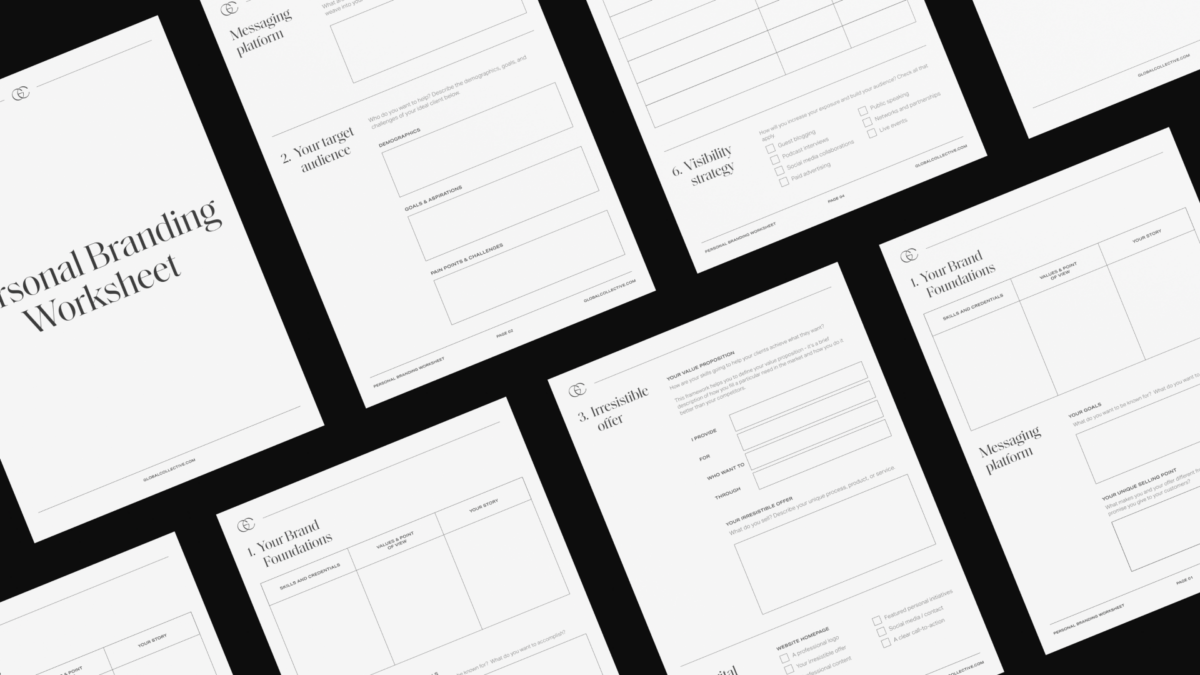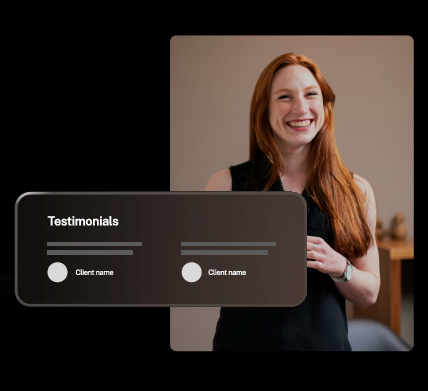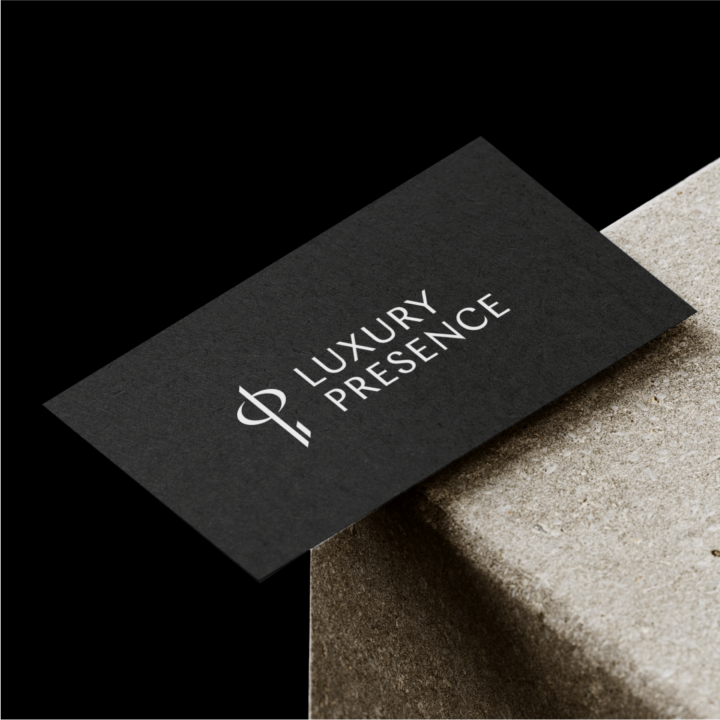A strong brand helps you attract your ideal clients, establish credibility, and differentiate yourself from competitors. This comprehensive 5-day guide will take you through each step of defining, building, and optimizing your brand so you can stand out in the industry.
Find It Fast
Day 1: Deep personal brand discovery
Self-assessment and brand foundation
A personal brand begins with clarity about who you are and what you offer. Start by analyzing your unique strengths and positioning in the market.
Personal brand audit
Conduct a thorough self-evaluation by answering these critical questions:
- What are my unique strengths as a real estate professional?
- What experiences or background make me different from other agents?
- Which core values guide my real estate practice?
- What specific problems do I solve for clients?
Ideal client persona development
Understanding your audience is essential for a compelling personal brand. Create a detailed profile of your ideal client by considering:
- Demographics: Age, income, profession, or family status
- Real estate goals: First-time buyers, luxury investors, downsizers
- Pain points: Finding the right property, timing the market, or navigating the selling process
Niche identification exercise
Narrow your focus by identifying your specialty. Here are some of the most common niche categories in real estate:
- Geographic expertise: Specific neighborhoods or enclaves
- Property type: Luxury waterfront, historic homes, investment properties
- Client segment: Tech professionals, empty nesters, international buyers
- Unique service model: Concierge approach, data-driven strategy
Rewrite your brand strategy
Our free resources can help you define your personal brand, level up your marketing plan, and reach your target audience.

Brand positioning strategy
Once you’ve defined your brand, you’re ready to figure out how to share it in a clear, compelling way that’s tailored to your audience.
Craft your unique value proposition (UVP)
This should encapsulate your unique strengths, market expertise, and the exceptional services you provide. Use this template to define your UVP:
“I help {specific target market} to {unique benefit} by {distinctive approach}.”
For example: Instead of the generic statement of, “I sell houses,” a powerful UVP might read, “I help tech executives seamlessly relocate to Silicon Valley’s most exclusive neighborhoods, transforming complex moves into stress-free experiences.”
Personal brand storytelling
Your personal stories help prospects connect with you on a deeper level, making you more relatable and memorable. Identify three to five key moments that showcase your passion, expertise, and dedication — such as a time you helped a first-time buyer navigate a tough market, went the extra mile to close a complex deal, or made a lasting impact on a client’s life.
These stories should highlight your problem-solving skills, client-first approach, and unique perspective on real estate. Share them in your marketing, social media, and client conversations to build trust and establish an emotional connection that sets you apart.
Day 2: Digital brand infrastructure
Your digital presence will often be the first impression potential clients will have of your business. This is why a high-performing real estate website is non-negotiable.
Website essentials
If you already have a website, make sure it has these elements:
- Professional, mobile-responsive design
- A clear UVP on the homepage
- High-quality professional headshots
- Client testimonial section
- Easy lead capture mechanisms
- Blog with valuable content
If you need a new website, look for a provider that offers customizable designs, reliable support, and marketing integrations to help grow your business.
Your guide to the perfect homepage
Leverage our data and expertise to craft an online presence that delivers high-quality leads and best-in-class brand recognition.

Tech stack for brand management
Leveraging the right tools can streamline your brand management and marketing efforts. As you work to establish your brand and work through your strategy and planning, ensure you have:
- A CRM system to track and nurture leads effectively
- Social media scheduling tools to maintain a consistent online presence
- Analytics platforms to measure performance and optimize your strategy
- Email marketing software to engage and nurture leads with targeted campaigns
Social media strategy
Before diving into content creation, a real estate agent should first assess their current social media presence and define clear goals. Start by auditing existing profiles — are they consistent in branding, messaging, and professional appeal? Ensure profile images, bios, and contact information are up to date. Next, identify the target audience and the platforms where they are most active — whether it’s Instagram for visual storytelling, Facebook for community engagement, or LinkedIn for networking.
Outline a strategy that aligns with business objectives, such as lead generation, brand awareness, or client education. Finally, research competitors and industry leaders to understand what works, setting a foundation for an effective, strategic social media plan.
It’s difficult to manage all social media platforms effectively, so pick three to really focus on. Platform selection and optimization are critical to establishing digital brand identity, so choose the ones where you think you’ll find success.
- LinkedIn: Professional networking, market insights
- Instagram: Visual storytelling, property showcases
- TikTok: Short-form educational content
- Facebook: Community engagement, local market updates
Content pillars
These are core pillars for your social media content creation. Create a strategy that leverages these topics and showcase your brand. For example, you might post about new listings every Monday, or offer homeownership tips every Friday. Create rhythm with your content and ensure that you’re serving your audience.
- Market insights and local expertise
- Property showcases and listings
- Home buying and selling education
- Community and lifestyle content
- Personal branding and trust building
- Investment and wealth building
- Home maintenance and improvement
- Client engagement and interaction
Personal branding toolkit
Define and collect your marketing assets in a brand book, including:
- Color palette
- Typography and font
- Logo or personal brand mark
- Email signature
- Social media templates
- Presentation decks
Post with confidence
Maintaining a consistent, on-brand social media presence is crucial in real estate. Download our social media calendar for 30 days of inventive content ideas tailored to the industry.

Day 3: Content and thought leadership
A strong personal brand thrives on valuable content. To position yourself as a thought leader in real estate, you need a strategic approach to content creation. This includes written content, video, podcasts, and strategic partnerships to expand your influence.
Blog and long-form content plan
Written content is a cornerstone of thought leadership. It allows you to educate, inform, and engage potential clients while strengthening your SEO strategy. Brainstorm topics and ideas and keep a running list.
Today, focus on the brainstorming and set a calendar to create more content throughout the weeks and months. To maintain a steady flow of valuable insights, aim to identify:
- Ten potential blog topics covering timely real estate trends, market shifts, and common client concerns
- Five titles for in-depth market analysis pieces that break down local and national real estate data to help clients make informed decisions
- Three neighborhoods that need guides that highlight lifestyle factors, market stats, and amenities in key areas you serve
- Two real estate process deep dives that walk buyers or sellers through each step of the transaction with expert advice
Video content blueprint
Video content is one of the most powerful tools for engaging audiences and building trust. A well-rounded video strategy should include different formats to keep your content fresh and relevant. Here are five key types of videos to consider:
- Market updates: Provide quick, insightful updates on real estate trends, mortgage rates, and inventory changes.
- Property walk-throughs: Give potential buyers an immersive experience of your listings with high-quality video tours.
- Client testimonial highlights: Showcase satisfied clients sharing their success stories to build social proof.
- Q&A sessions: Answer frequently asked questions about buying, selling, or investing to position yourself as an industry expert.
- Local community spotlights: Feature businesses, schools, and events in your area to connect with your community and attract local clients.
Podcast and guest posting strategy
Expanding your reach beyond your immediate audience is crucial for growing your brand. By appearing on podcasts and writing for industry publications, you can position yourself as an authority in real estate. To do this:
- Identify three to five local or national real estate podcasts where you can share your expertise.
- Develop a compelling pitch for guest appearances, focusing on your unique insights and experience.
- Create two to three guest post outlines tailored for reputable real estate publications to establish your credibility through written content.
Day 4: Advanced positioning and credibility
By leveraging educational opportunities, certifications, and community engagement, you can elevate your credibility and influence. Making a plan to develop your skills is crucial to building a brand.
Certification and continued learning
Continuing education is key to staying ahead in the real estate industry. Earning certifications and joining mastermind groups can enhance your knowledge and boost your credibility. Create a plan to:
- Determine a list of five skills or knowledge gaps you want to improve over the year, such as negotiation techniques, luxury real estate marketing, or digital lead generation.
- Identify one advanced certification to obtain this year. Bookmark the application and set a task on your calendar to apply next week.
- Apply to join two local professional mastermind groups where you can exchange insights with top-performing agents.
- Create a continuous learning plan that includes coaching, industry conferences, online courses, and mentorship opportunities. Identify a coach who interests you and follow them on social media; select one conference to attend, set up a budget, and make a calendar alert for when registrations open; and make a list of three possible mentors and send an invitation to have coffee with each of them.
Building strong relationships within the industry and your local community can lead to valuable partnerships and referral opportunities. To maximize your networking efforts:
- Identify 10 local businesses for cross-promotion, such as mortgage lenders, interior designers, and moving companies.
- Plan three collaborative content pieces, such as joint social media campaigns or co-hosted webinars that would work with the businesses on that list.
Community engagement strategy
Giving back to your community not only strengthens your brand but also fosters meaningful connections. To increase your visibility while making a positive impact:
- Select two to three local charities that align with your brand’s values and find ways to support them.
- Develop a community event plan, such as sponsoring a local fundraiser or hosting a networking event.
- Create a list of 10 content ideas that highlight your community involvement, including video, photos, social media posts, and articles.
Day 5: Measurement and optimization
To ensure your brand-building efforts are paying off, you need a system for tracking performance, gathering feedback, and optimizing your strategy.
Performance tracking dashboard
A data-driven approach helps you measure the effectiveness of your marketing and branding efforts. Set up a quarterly recurring event in your calendar to review the following key performance indicators:
- Website traffic: Monitor the number of visitors and their engagement levels.
- Lead conversion rates: Assess how many leads turn into clients. Determine lead conversion rate by dividing the number of closed deals by the total number of leads generated and multiplying by 100.
- Social media engagement: Measure likes, comments, shares, and follower growth.
- Client acquisition cost: Calculate how much you spend to acquire a new client by dividing your total marketing and sales expenses by the number of clients gained. Understanding this cost helps you assess profitability, optimize your lead generation strategies, improve your conversion rate, and ensure you’re not overspending.
- Referral network performance: Track the number of referrals received, their sources, and how many convert into clients. Evaluating the quality of referrals — such as whether they align with ideal client profiles — helps refine networking strategies for better results.
Feedback and refinement
Continuous improvement is essential for long-term success. Regularly evaluating your brand’s strengths and weaknesses allows you to make necessary adjustments. Implement:
- Client satisfaction surveys to understand client experiences and areas for improvement. Google forms are an easy and free way to create simple surveys.
- Quarterly brand audit checklists to assess consistency and effectiveness across all platforms. Conduct a quarterly brand audit by reviewing your website, social media, and marketing materials to ensure consistency in messaging, visuals, and tone. Check for alignment with your brand identity, update outdated content, and assess engagement metrics to gauge effectiveness. Use a checklist to track logo usage, bio descriptions, content themes, and client feedback to identify areas for improvement.
- Competitive analysis processes by selecting three to five top competitors and analyzing their websites, social media, listings, and client reviews. Track their pricing trends, marketing messages, and unique offerings in a spreadsheet, noting any changes or emerging industry trends. Use these insights to adjust your own strategies, highlight your differentiators, and stay ahead in the market.
Bonus: 30-60-90-day implementation roadmap
Your personal brand is a dynamic asset that requires regular attention to stay relevant in the real estate industry. Follow this structured plan to refine your branding and marketing efforts over the next three months.
Next steps
- Daily branding actions: Commit to at least one branding-focused task each day, such as sharing an industry insight on social media, engaging with followers, or refining your bio and website content. Try setting a google alert for when recurring data-driven reports come out and plan content around them.
- Monthly brand reviews: Set aside time each month to assess brand consistency, update visuals and messaging, and analyze audience engagement data to refine your strategy.
- Leverage automation and AI: Streamline content creation, email marketing, and lead nurturing with AI-powered tools to maintain consistency while saving time. Fold in more tools as you scale. Always consider your cost-benefit analysis and overall budget when considering new subscriptions.
- Test and optimize: Experiment with different messaging, visuals, and calls to action to see what resonates best with your audience, adjusting based on performance insights. Track your results in a spreadsheet and roll out new options to test every quarter.
- Stay adaptable: Keep an eye on industry trends and competitor branding strategies to ensure your approach remains relevant and impactful.
- Invest in scalable growth: Elevate your digital presence by leveraging a professional marketing and lead generation platform like Luxury Presence to strengthen your brand and attract high-quality clients.
Your personal brand + Luxury Presence
Your brand is your most valuable asset — make it work for you. Luxury Presence offers award-winning websites, branded mobile apps, and content marketing solutions to help real estate professionals like you stand out and succeed. Let us help you create a personal brand that attracts high-quality clients and drives business growth.
Luxury Presence can elevate your marketing strategy
Learn how we can help take your real estate business to the next level. Schedule a time to speak with one of our branding experts today.





